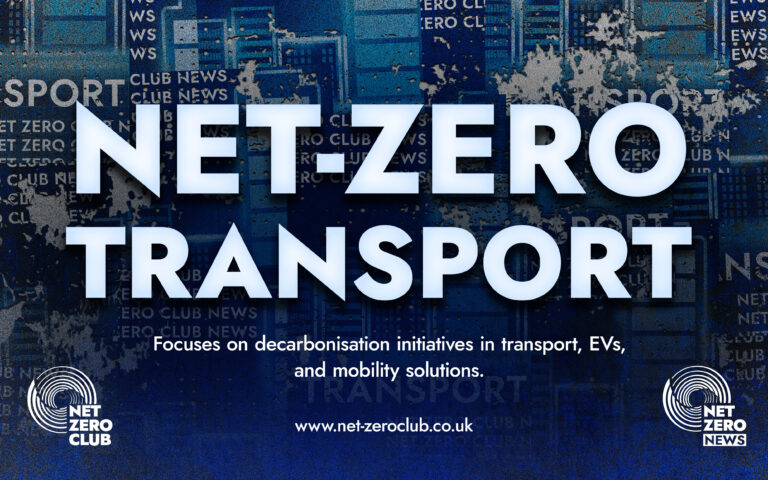Van Demand Drops Post Plate Change, eLCV Adoption Surges

Welcome, Net Zero News readers,
As we navigate the ever-evolving landscape of the electric vehicle (EV) market, recent developments in the UK’s light commercial vehicle (LCV) sector have garnered significant attention. Despite the introduction of the new ‘75’ number plate in September, the LCV market experienced a slight decline of 2.1%. This downturn, while concerning, coincided with an extraordinary surge in electric van registrations, reflecting a complex and dynamic shift within the automotive industry.
According to the latest figures from the Society of Motor Manufacturers and Traders (SMMT), a total of 47,418 vans, pickups, and 4x4s were registered in September. This marks a decrease of just over a thousand units when compared to the 48,455 units registered in September 2024. The mixed performance across various segments of the market highlights both challenges and opportunities as we move towards a more sustainable future.
The largest vans, which account for the biggest segment by volume, saw a commendable rise in registrations, with a 3.2% increase leading to 32,670 units. This impressive statistic represents nearly 70% of all registrations for the month. Moreover, the demand for new pickups and the smallest-sized vans also experienced growth, with registrations up by 7.8% and 1.9%, respectively. Specifically, the figures rose to 5,749 for pickups and 1,202 for the smallest vans.
However, it is important to note that the medium-sized van segment faced significant challenges, with a staggering 25.1% drop in uptake, resulting in only 7,150 units registered. Additionally, 4×4 registrations declined by 13.4%, with just 647 units making it onto the roads last month. These declines serve as a stark reminder of the pressures faced by businesses in the current economic climate.
The SMMT attributes this “modest drop” in the new van market to a continuation of 2025’s downward trend, with overall registrations down by 9.8% year-to-date. This decline is largely reflective of a challenging economic environment and a prevailing sense of weak business confidence. Nevertheless, it is worth noting that September’s downturn represents the smallest decline observed this year, and registrations remain above pre-pandemic levels, offering a glimmer of hope amidst the uncertainty.
In a significant contrast, the uptake of electric vans saw a remarkable increase of 41.1% year-on-year, resulting in a record-breaking 4,262 units registered in September alone. This surge marks the highest monthly volume ever recorded, capturing an impressive market share of 8.9%. Year-to-date, battery electric vehicle (BEV) volumes have reached 22,118 units, reflecting a staggering 55.9% increase compared to 2024. However, despite this progress, BEVs currently account for only 9.1% of all new registrations, falling short of the 16% market share mandated for 2025.
The encouraging growth in electric van registrations is bolstered by initiatives such as the extension of the Plug-in Van Grant and the recent introduction of the Depot Charging Scheme. These measures are pivotal in facilitating the transition to electric vehicles for operators. However, the SMMT has emphasised that achieving the mandated goals relies heavily on boosting operator confidence and ensuring access to suitable charging infrastructure.
The trade body has also reiterated the necessity for equitable access to charging solutions for all new buyers, particularly those who require van-suitable charging infrastructure in public, on-street, and overnight locations. One of the pressing challenges highlighted is the potential for depots to face grid connection waits of up to 15 years, underscoring the urgent need for prioritising planning approvals to enhance the charging infrastructure.
Mike Hawes, the SMMT chief executive, expressed his thoughts on the current state of the market, stating, “September is one of the busiest months for the new van market, so a slight dip in volumes compared with previous strong years is disappointing but unsurprising. The growth in electric van uptake is hugely encouraging, but the market is under pressure to deliver the investment necessary for decarbonisation. Manufacturers are delivering a huge choice of models to suit all businesses – now we need better dedicated infrastructure and continuing incentives to drive the switch.”
As we reflect on these developments, it is clear that the journey towards a sustainable and decarbonised future is fraught with both challenges and opportunities. The resilience of the electric van market amidst economic pressures serves as a testament to the growing commitment to sustainability within the automotive sector. However, the path forward requires collaborative efforts from manufacturers, policymakers, and infrastructure providers to ensure that the transition is not only achievable but also equitable.
In conclusion, while the LCV market may have experienced a downturn in September, the surge in electric van registrations offers a hopeful narrative for the future of sustainable transport in the UK. As we continue to advocate for net-zero solutions, it is imperative that we remain vigilant in addressing the challenges that lie ahead. Together, we can drive the transition towards a cleaner, greener future for all.

 Got net-zero news, project updates, or product launches to share?
Got net-zero news, project updates, or product launches to share? 